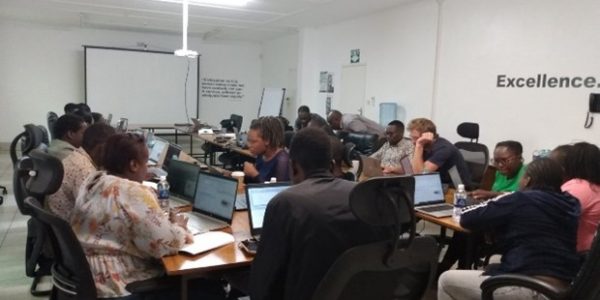Posts by pczmj
BLA: An R Package for Boundary Line Analysis
July 30, 2024
This blog is by Chawezi Miti, a Rothamsted PhD student at the University of Nottingham School of Biosciences, funded through the Food Systems Institute. As part of a joint PhD under the University of Nottingham and Rothamsted Research programme in International Agricultural Development, Chawezi Miti and his supervisors Professor Murray Lark (Nottingham), Dr Alice Milne (Rothamsted) …
Eating Your Way to a Greener Future
February 14, 2024
This post is by Natasha Cheater, a final year undergraduate BA Liberal Arts student at the University of Nottingham, with a keen interest in food supply chain, and the quality of the food we eat. If you value your well-being, care about the planet, and wish to contribute to positive change, this article is for …
Can Agriculture Save the Planet? Insights from COP28 and Beyond
December 8, 2023
This post is by the Food Systems Institute Director, Jack A Bobo As the world’s attention turns to the COP28 conference in Dubai, a pivotal event in the environmental calendar, the focus on sustainable food systems has never been more critical. The Emirates Declaration on Sustainable Agriculture, Resilient Food Systems, and Climate action, a ground …
Time to diversify rather than demonize our dietary protein sources
October 23, 2023
This blog is by Professors Andrew Salter and John Brameld. Andrew Salter is an Emeritus Professor of Nutritional Biochemistry, School of Biosciences at the University of Nottingham. John Brameld is a Professor of Nutritional Biochemistry at the School of Biosciences, University of Nottingham Global protein consumption trends Consumption of protein of appropriate quality, in terms …
“I guess it’s quite trendy”: New research explores young meat-eaters’ sustainable food consumption habits.
October 17, 2023
This post is by Dr Qian Yang, Assistant Professor in Sensory and Consumer Science and Hannah Ford, PhD student in Sensory and Consumer Science. Consumers are influential in determining the success of new products and future food trends. As the market for sustainable food continues to expand, there is a need to understand how consumers’ …
Fungi alternatives could diversify sustainable sources of protein to feed the world
October 11, 2023
This post is by Professor Paul Dyer, Professor of Fungal Biology at the University of Nottingham. Our food system feeds 8 billion people each day, but this comes at ever increasing environmental costs in terms of land, water, greenhouse gas emissions, and biodiversity loss. With the rising global population and soaring demand for protein, there …
Will meat alternatives ever taste as good as meat?
October 9, 2023
This post is by Professor Ian Fisk, Professor of Flavour Science at the University of Nottingham. When we are asked to think of the flavour of meat, we might come up with its characteristic aroma during cooking. However, the overall flavour that we perceive is very complex and is a mix of multiple sensory attributes; …
Nourishing the Future: Alternative Proteins and Global Agriculture Challenges
October 4, 2023
This post is by Jack Bobo, the Nottingham International Centre for Alternative Proteins lead and Director, Food Systems Institute. As our global population continues to grow, so does the demand for food. Agriculture is facing unprecedented challenges, from climate change and resource scarcity to land degradation and biodiversity loss. To meet these challenges, we must …




Recent Comments